One of the most popular weight loss methods without any surgical intervention is Gastric Injection! The procedure is done by endoscopy and takes only 30 minutes. With no hospitalization needed and with affordable price, gastric injections might help you lose weight! The material is obtained from natural bacteria and this material has been used in aesthetic and other branches for a long time.
Gastric injections, a relatively recent development in medical science, are designed to offer a non-surgical alternative for weight management. These injections, administered directly into the stomach, typically contain substances that can reduce appetite or alter the body's absorption and processing of food.
This innovative approach targets the increasing global issue of obesity, offering a less invasive option compared to traditional bariatric surgeries like gastric bypass or sleeve gastrectomy.
While still under thorough research and development, gastric injections are gaining attention for their potential to aid in significant weight loss without the need for extensive surgery.
This method could revolutionize the treatment of obesity, a condition linked with numerous health complications such as heart disease, diabetes, and stroke.
As with any medical treatment, gastric injections should be considered carefully and discussed with healthcare professionals to understand their benefits and risks.
Gastric injections help with weight loss through several mechanisms, each depending on the specific type of substance used in the injection. The primary ways these injections aid in weight loss include:
It's important to note that while gastric injections can be effective for weight loss, they are typically recommended as part of a broader weight management plan that includes diet, exercise, and lifestyle changes. The exact mechanism and effectiveness can vary based on the type of injection and the individual's overall health profile. As with any medical treatment, it’s essential to discuss the potential benefits and risks with a healthcare professional.
Gastric injections are not a direct replacement for bariatric surgery, but rather an alternative option for weight management. Here's a comparison to understand their roles better:
In summary, while gastric injections offer an alternative to bariatric surgery, they are not necessarily a replacement. They serve different needs and have varying implications. The choice between the two depends on individual health conditions, weight loss goals, and personal preferences. It's crucial for individuals to consult with healthcare professionals to make an informed decision based on their specific circumstances.
Eligibility for gastric injections primarily depends on various health and medical factors. Generally, the criteria include:
It's important to note that the specific criteria for eligibility can vary depending on the type of gastric injection and the healthcare provider's protocols. Therefore, consulting with a healthcare professional is essential to determine if gastric injections are a suitable weight loss option for an individual. This consultation will include a thorough medical assessment and discussion about the potential risks and benefits of the procedure.
The effectiveness of gastric injections for long-term weight loss is still an area of ongoing research, and results can vary depending on the type of injection and individual factors. However, here are some key points regarding their effectiveness:
In summary, gastric injections can be an effective tool for weight loss, especially when part of a comprehensive weight management plan. However, their long-term effectiveness varies, and ongoing research is needed to fully understand their role in sustained weight loss. It's crucial for individuals to discuss with healthcare professionals the potential benefits and limitations of gastric injections in the context of their personal health and weight loss goals.
The frequency of gastric injections can vary depending on the type of injection, individual treatment plans, and the response of the patient. There is no one-size-fits-all answer, but here are some general guidelines:
It's essential to consult with a healthcare provider who specializes in weight management or obesity medicine to determine the appropriate injection schedule for your specific case. The choice of frequency will depend on factors like the type of injection, your individual response to the treatment, and your healthcare provider's recommendations.
Additionally, lifestyle modifications, including diet and exercise, are typically recommended alongside gastric injections to enhance their effectiveness in achieving and maintaining weight loss. Your healthcare provider can help you create a comprehensive weight management plan that includes the injection schedule and lifestyle changes tailored to your needs.
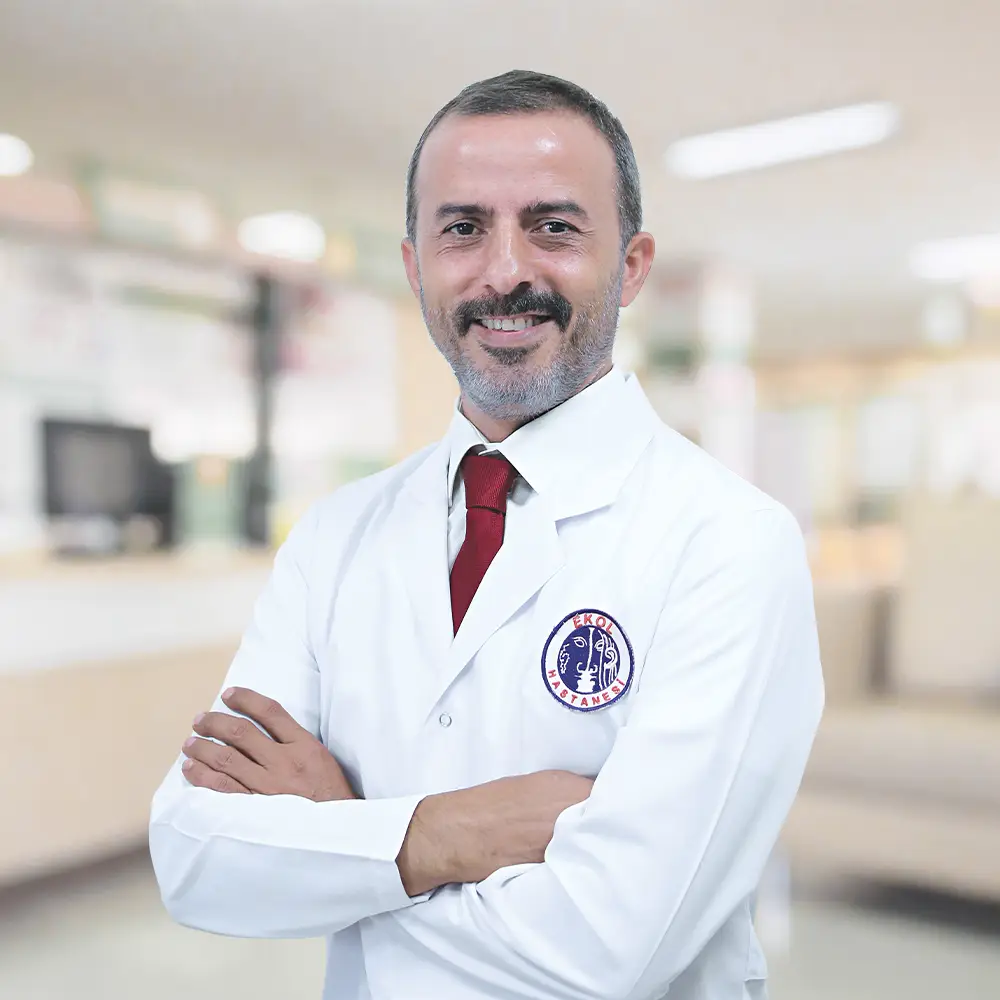 He completed his medical education at Dokuz Eylul University Faculty of Medicine between 1995 and 2001. He specialized in General Surgery at Ankara Training and Research Hospital between 2001 and 2006. He worked as a General Surgery Specialist at Ankara Training and Research Hospital between 2006 and 2008 and later at Ordu State Hospital between 2008 and 2013. In 2016, he received the title of Associate Professor in the Department of General Surgery, Faculty of Medicine, Izmir University. In 2015, he received the Turkish Surgical Association Proficiency Exam (Board) Certificate of Achievement. He is a member of Turkish Surgical Association, Turkish Colon and Rectum Surgery Association, National Endoscopic Laparoscopic Surgery Association, Bariatric and Metabolic Surgery Association, and Hepatobiliary Surgery Association. Between 2014 and 2016, he taught many undergraduate and graduate courses at Izmir University Faculty of Medicine. He has conducted many national and international studies and these studies have received many citations. Assoc. Prof. Dr. Ömer Yoldaş speaks English fluently. He has two children.
Knowledge Domain: Obesity Surgery and Metabolic Surgery, Laparoscopic Reflux Surgery, Laparoscopic Gallbladder Surgeries, Gastric Balloon Application, Gastric filler Application, Laparoscopic Gastric and Intestinal Cancer Surgeries, Haemorrhoid Surgeries, Perianal Fistula Surgeries, Laparoscopic Abdominal and Groin Hernia Surgeries, Breast Cancer Surgeries, Thyroid Cancer and Goitre Surgeries.
He completed his medical education at Dokuz Eylul University Faculty of Medicine between 1995 and 2001. He specialized in General Surgery at Ankara Training and Research Hospital between 2001 and 2006. He worked as a General Surgery Specialist at Ankara Training and Research Hospital between 2006 and 2008 and later at Ordu State Hospital between 2008 and 2013. In 2016, he received the title of Associate Professor in the Department of General Surgery, Faculty of Medicine, Izmir University. In 2015, he received the Turkish Surgical Association Proficiency Exam (Board) Certificate of Achievement. He is a member of Turkish Surgical Association, Turkish Colon and Rectum Surgery Association, National Endoscopic Laparoscopic Surgery Association, Bariatric and Metabolic Surgery Association, and Hepatobiliary Surgery Association. Between 2014 and 2016, he taught many undergraduate and graduate courses at Izmir University Faculty of Medicine. He has conducted many national and international studies and these studies have received many citations. Assoc. Prof. Dr. Ömer Yoldaş speaks English fluently. He has two children.
Knowledge Domain: Obesity Surgery and Metabolic Surgery, Laparoscopic Reflux Surgery, Laparoscopic Gallbladder Surgeries, Gastric Balloon Application, Gastric filler Application, Laparoscopic Gastric and Intestinal Cancer Surgeries, Haemorrhoid Surgeries, Perianal Fistula Surgeries, Laparoscopic Abdominal and Groin Hernia Surgeries, Breast Cancer Surgeries, Thyroid Cancer and Goitre Surgeries.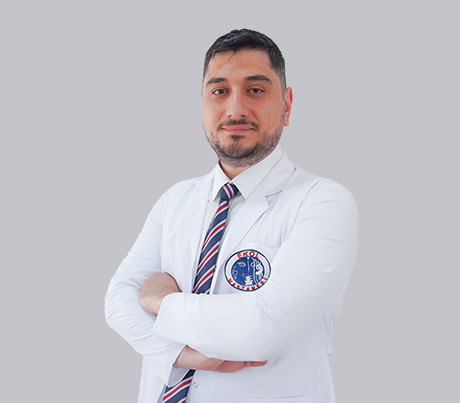 Date of birth
10.11.1987
Education and Expertise
Karadeniz Technical University Faculty of Medicine
Kocatepe University
Ankara University Faculty of Medicine
Konya Health Sciences University
Professional Interests:
Obesity (fatness) surgery and metabolic surgery
Laparoscopic reflux surgery
Laparoscopic gallbladder surgeries
Gastric balloon application
ERCP, EMR, ESD (Advanced Endoscopic procedures)
Laparoscopic pancreatic cancer surgery
Laparoscopic gastric and intestinal cancer surgeries
Hemorrhoid surgeries
Perianal fistula surgeries
Laparoscopic abdominal and inguinal hernia surgeries
Oncoplastic Breast cancer surgeries
Natural cancer surgery (NOSE)
Thyroid cancer and goiter surgeries.
Memberships to Scientific Organizations
Turkish Surgery Association
Turkish Obesity Surgery Association
Surgical Oncology Association
National Society of Endoscopic Laparoscopic Surgery
He is a member of the Bariatric and Metabolic Surgery Association.
Courses and Certificates:
Turkish surgical association proficiency exam (Board) certificate of achievement in 2018
He has more than 100 papers presented in national and international congresses and more than 50 articles published in international journals.
Foreign language
English
Date of birth
10.11.1987
Education and Expertise
Karadeniz Technical University Faculty of Medicine
Kocatepe University
Ankara University Faculty of Medicine
Konya Health Sciences University
Professional Interests:
Obesity (fatness) surgery and metabolic surgery
Laparoscopic reflux surgery
Laparoscopic gallbladder surgeries
Gastric balloon application
ERCP, EMR, ESD (Advanced Endoscopic procedures)
Laparoscopic pancreatic cancer surgery
Laparoscopic gastric and intestinal cancer surgeries
Hemorrhoid surgeries
Perianal fistula surgeries
Laparoscopic abdominal and inguinal hernia surgeries
Oncoplastic Breast cancer surgeries
Natural cancer surgery (NOSE)
Thyroid cancer and goiter surgeries.
Memberships to Scientific Organizations
Turkish Surgery Association
Turkish Obesity Surgery Association
Surgical Oncology Association
National Society of Endoscopic Laparoscopic Surgery
He is a member of the Bariatric and Metabolic Surgery Association.
Courses and Certificates:
Turkish surgical association proficiency exam (Board) certificate of achievement in 2018
He has more than 100 papers presented in national and international congresses and more than 50 articles published in international journals.
Foreign language
English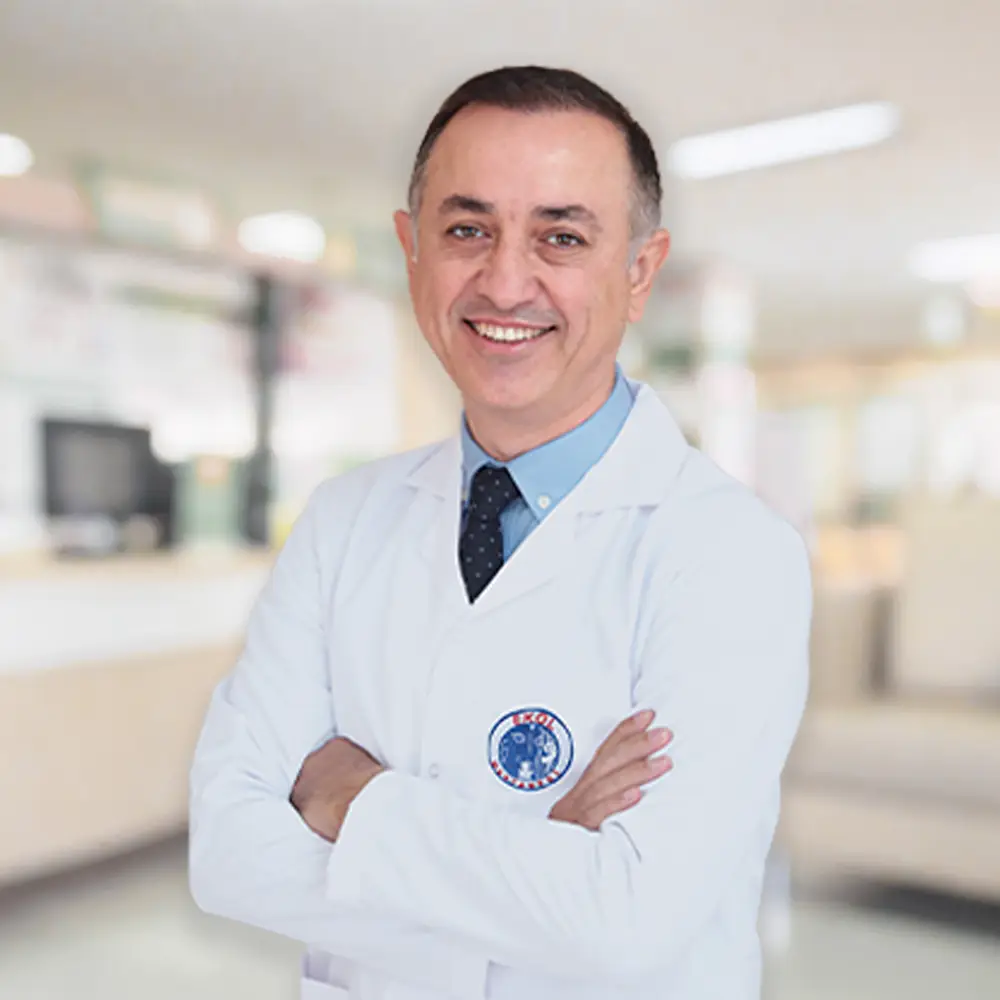 He completed his medical education at Osmangazi University Faculty of Medicine between 1990 and 1996, and his residency in General Surgery at Izmir Training and Research Hospital between 2004 and 2008. In 2008, he received the Turkish Surgical Association's Qualification Exam (Board) certificate of success. He is a member of Turkish Surgical Association, Turkish Colon and Rectum Surgery Association, National Endoscopic Laparoscopic Surgery Association, Bariatric and Metabolic Surgery Association. He worked as a lecturer at Istanbul Rumeli University between 2017 and 2020. He currently performs Laparoscopic Oncosurgery and Obesity Surgeries. He has many national and international studies and these studies have received many citations. Having a good command of English, Opr. Dr. Özgür Kavak is married and has two children.
Areas of interest: Laparoscopic Sleeve Gastrectomy, Laparoscopic Full Gastric Bypass, Laparoscopic Mini Bypass, Laparoscopic Type 2 Diabetes Surgery, Gastric Balloon Application with Endoscopic Method. In Non-Surgical Obesity Treatments: Stomach filler (Endoscopic), Laparoscopic Oncology Surgery (Colorectal, Stomach, Pancreas, Adrenal), Reflux - Gastric Hernia Surgery (Laparoscopic), Minimally Invasive Surgery, Laparoscopic Hernia Surgery, Endocrine Surgery (Thyroid - Breast Surgery), Haemorrhoid Surgery with Laser, Haemorrhoidopexy (LHP), Perianal Fistula Surgery with FILAC (Fistula Laser Closure) Method.
He completed his medical education at Osmangazi University Faculty of Medicine between 1990 and 1996, and his residency in General Surgery at Izmir Training and Research Hospital between 2004 and 2008. In 2008, he received the Turkish Surgical Association's Qualification Exam (Board) certificate of success. He is a member of Turkish Surgical Association, Turkish Colon and Rectum Surgery Association, National Endoscopic Laparoscopic Surgery Association, Bariatric and Metabolic Surgery Association. He worked as a lecturer at Istanbul Rumeli University between 2017 and 2020. He currently performs Laparoscopic Oncosurgery and Obesity Surgeries. He has many national and international studies and these studies have received many citations. Having a good command of English, Opr. Dr. Özgür Kavak is married and has two children.
Areas of interest: Laparoscopic Sleeve Gastrectomy, Laparoscopic Full Gastric Bypass, Laparoscopic Mini Bypass, Laparoscopic Type 2 Diabetes Surgery, Gastric Balloon Application with Endoscopic Method. In Non-Surgical Obesity Treatments: Stomach filler (Endoscopic), Laparoscopic Oncology Surgery (Colorectal, Stomach, Pancreas, Adrenal), Reflux - Gastric Hernia Surgery (Laparoscopic), Minimally Invasive Surgery, Laparoscopic Hernia Surgery, Endocrine Surgery (Thyroid - Breast Surgery), Haemorrhoid Surgery with Laser, Haemorrhoidopexy (LHP), Perianal Fistula Surgery with FILAC (Fistula Laser Closure) Method.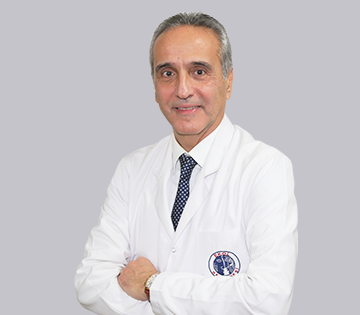 He graduated from Dokuz Eylül University, Faculty of Medicine. Between 1987 and 1991, he completed his specialization in general surgery at Buca SSK Hospital in Izmir. Between 1991 and 2016, he worked at Karşıyaka State Hospital, then until 2019 he worked as the General Surgery Specialist at Çiğli Training and Research Hospital. He is an active member of Turkish Surgical Association, Turkish Society of Colon and Rectal Surgery. He has experienced around 30,000 successful operations in the field of general surgery. Areas of interest: Laparoscopic gallbladder operations, gastrointestinal surgery, haemorrhoids and fissure surgeries, abdominal and inguinal hernia operations, breast cancer operations, thyroid cancer and goiter operations. Op. Dr. Attila El is married and has one child. He speaks fluent English.
He graduated from Dokuz Eylül University, Faculty of Medicine. Between 1987 and 1991, he completed his specialization in general surgery at Buca SSK Hospital in Izmir. Between 1991 and 2016, he worked at Karşıyaka State Hospital, then until 2019 he worked as the General Surgery Specialist at Çiğli Training and Research Hospital. He is an active member of Turkish Surgical Association, Turkish Society of Colon and Rectal Surgery. He has experienced around 30,000 successful operations in the field of general surgery. Areas of interest: Laparoscopic gallbladder operations, gastrointestinal surgery, haemorrhoids and fissure surgeries, abdominal and inguinal hernia operations, breast cancer operations, thyroid cancer and goiter operations. Op. Dr. Attila El is married and has one child. He speaks fluent English.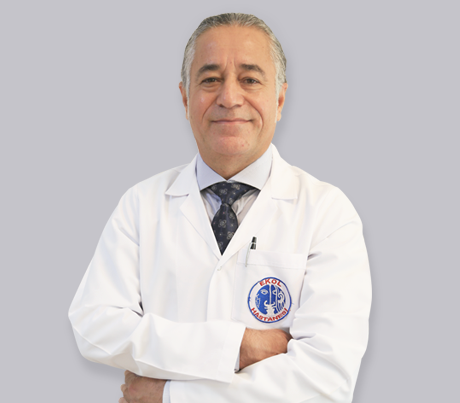 He completed his medical education at Istanbul University Cerrahpaşa Faculty of Medicine between 1986-1992. He completed his general surgery residency at İzmir Tepecik Training and Research Hospital between 1995-2000. In 2011, he received his education in the field of ERCP and Endoscopy at Afyon Kocatepe University. He worked as a specialist at Tepecik Training and Research Hospital, Karşıyaka State Hospital, Bakırçay University / Çiğli Training and Research Hospital between 2000-2021. He is a member of the Turkish Society of Surgery, Society of Endoscopic Laparoscopic Surgery, the bariatric and metabolic surgery society, and the Turkish Obesity Foundation. His special interest is Obesity Surgery.
The father of 2 children, Opr. Dr. Abdulkadir Korkmaz has a good command of English.
Areas of interest: Laparoscopic (closed) obesity (obesity) surgeries (sleeve – medicine stomach, gastric bypass) Gastric balloon application with endoscopic method in non-surgical obesity treatment Laparoscopic (closed) inguinal hernia surgeries Laparoscopic (closed) appendicitis surgeries Laparoscopic (closed) gallbladder surgeries Laparoscopic (closed) reflux - gastric hernia surgeries Goiter and Breast (breast cancer) surgeries Hemorrhoids treatment with laser Anescal surgery with laser
He completed his medical education at Istanbul University Cerrahpaşa Faculty of Medicine between 1986-1992. He completed his general surgery residency at İzmir Tepecik Training and Research Hospital between 1995-2000. In 2011, he received his education in the field of ERCP and Endoscopy at Afyon Kocatepe University. He worked as a specialist at Tepecik Training and Research Hospital, Karşıyaka State Hospital, Bakırçay University / Çiğli Training and Research Hospital between 2000-2021. He is a member of the Turkish Society of Surgery, Society of Endoscopic Laparoscopic Surgery, the bariatric and metabolic surgery society, and the Turkish Obesity Foundation. His special interest is Obesity Surgery.
The father of 2 children, Opr. Dr. Abdulkadir Korkmaz has a good command of English.
Areas of interest: Laparoscopic (closed) obesity (obesity) surgeries (sleeve – medicine stomach, gastric bypass) Gastric balloon application with endoscopic method in non-surgical obesity treatment Laparoscopic (closed) inguinal hernia surgeries Laparoscopic (closed) appendicitis surgeries Laparoscopic (closed) gallbladder surgeries Laparoscopic (closed) reflux - gastric hernia surgeries Goiter and Breast (breast cancer) surgeries Hemorrhoids treatment with laser Anescal surgery with laser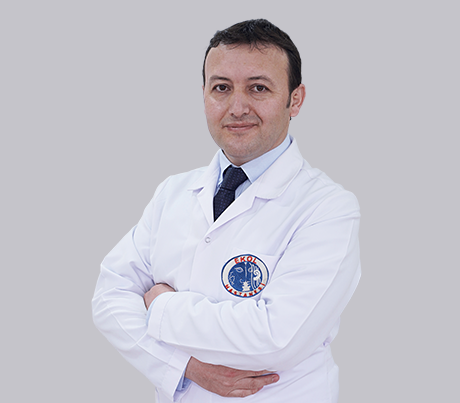 He completed his medical education at Dokuz Eylul University Faculty of Medicine between 1995-2001. He completed his general surgery residency at Eskişehir Osmangazi University Faculty of Medicine between 2002-2007. He is a member of Turkish Surgery Association, Turkish Colon and Rectum Surgery Association, National Endoscopic Laparoscopic Surgery Association, Bariatric and Metabolic Surgery Association, Hepatobiliary Surgery Association and Endocrine Surgery Association. He has many national and international studies and these studies have been cited many times.
Fluent in English, Opr. Dr. Rıza Özdemir is married and has one child.
Areas of interest:
• Obesity (fatness) surgery and metabolic surgery
• Laparoscopic reflux surgery
• Laparoscopic gallbladder surgeries
• Gastric balloon application
• Stomach injection application
• Laparoscopic gastric and intestinal cancer surgeries
• Haemorrhoid surgeries
• Perianal fistula surgeries
• Laparoscopic abdominal and inguinal hernia surgeries
• Breast cancer surgeries
He completed his medical education at Dokuz Eylul University Faculty of Medicine between 1995-2001. He completed his general surgery residency at Eskişehir Osmangazi University Faculty of Medicine between 2002-2007. He is a member of Turkish Surgery Association, Turkish Colon and Rectum Surgery Association, National Endoscopic Laparoscopic Surgery Association, Bariatric and Metabolic Surgery Association, Hepatobiliary Surgery Association and Endocrine Surgery Association. He has many national and international studies and these studies have been cited many times.
Fluent in English, Opr. Dr. Rıza Özdemir is married and has one child.
Areas of interest:
• Obesity (fatness) surgery and metabolic surgery
• Laparoscopic reflux surgery
• Laparoscopic gallbladder surgeries
• Gastric balloon application
• Stomach injection application
• Laparoscopic gastric and intestinal cancer surgeries
• Haemorrhoid surgeries
• Perianal fistula surgeries
• Laparoscopic abdominal and inguinal hernia surgeries
• Breast cancer surgeries